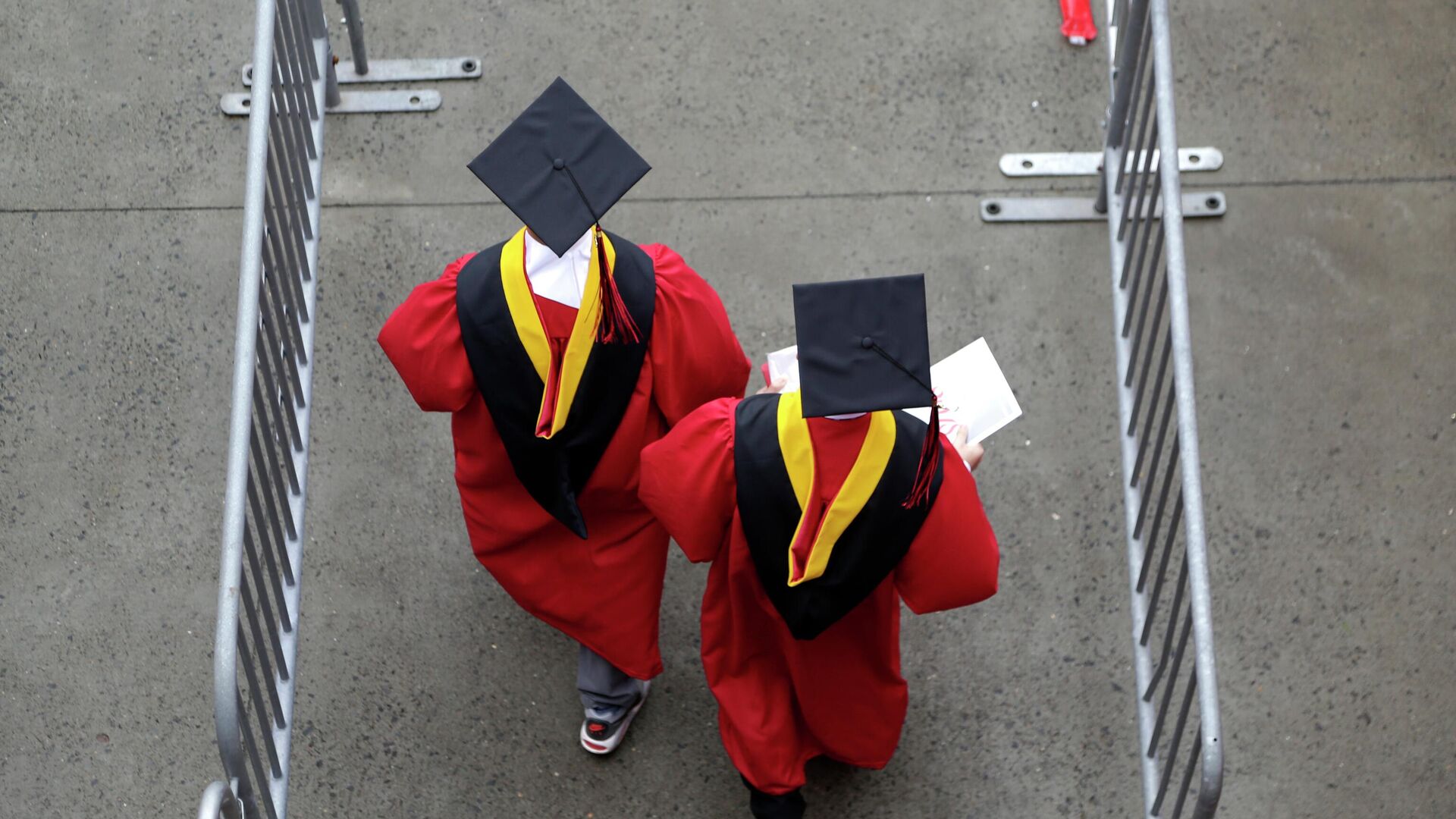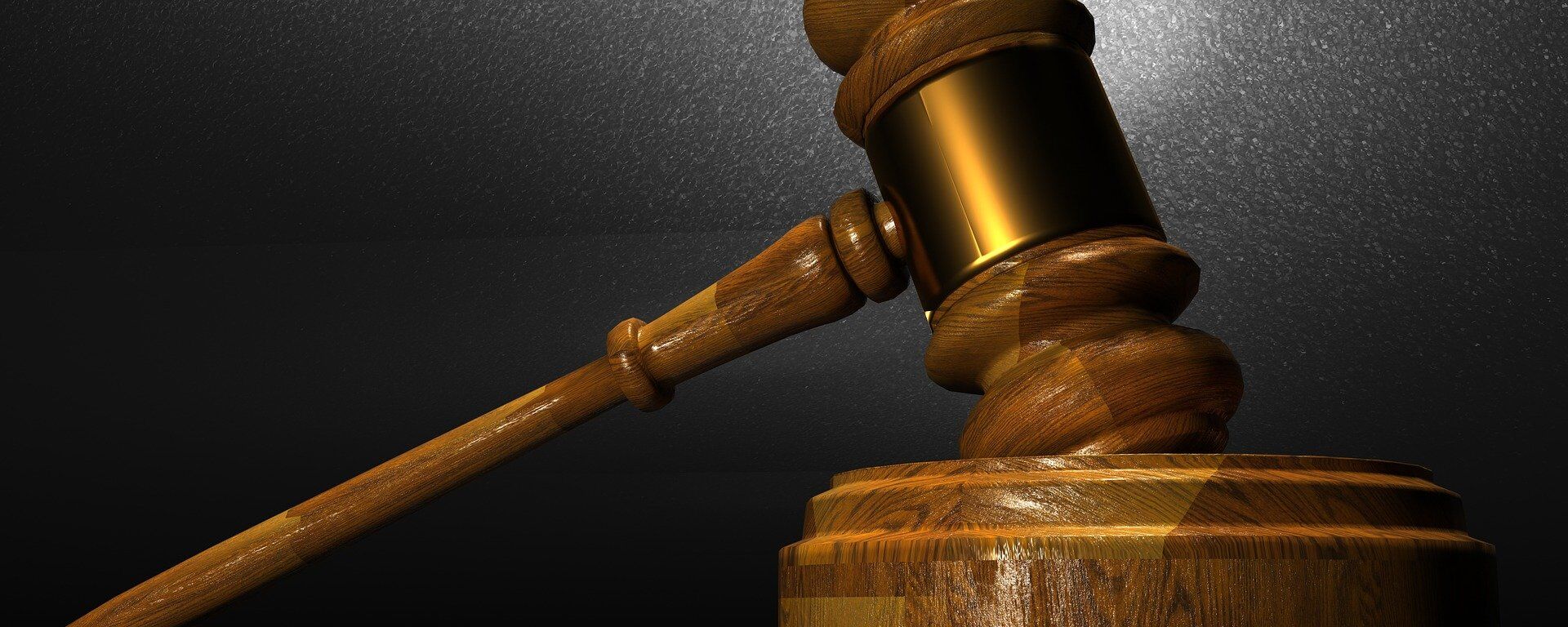https://sputnikglobe.com/20230704/us-colleges-could-still-try-practicing-race-based-admissions-despite-scotus-ruling-1111665092.html
US Colleges Could Still Try Practicing Race-Based Admissions Despite SCOTUS Ruling
US Colleges Could Still Try Practicing Race-Based Admissions Despite SCOTUS Ruling
Sputnik International
Colleges in the United States are likely to attempt to continue the practice of race-based college admissions, despite the recent US Supreme Court decision
2023-07-04T18:55+0000
2023-07-04T18:55+0000
2023-07-04T18:55+0000
americas
us
clarence thomas
supreme court
scotus
us supreme court
affirmative action
https://cdn1.img.sputnikglobe.com/img/07e6/08/1a/1100020053_0:212:3072:1940_1920x0_80_0_0_b580afbb6e37e61e0e74eb5a2eed071e.jpg
Last week, the court ruled that Harvard and UNC’s consideration of race in their college admissions process violates the Fourteenth Amendment of the US Constitution, which guarantees equal protection under the law. However, as Chief Justice John Roberts wrote in the majority decision that "nothing prohibits universities from considering an applicant's discussion of how race affected the applicant's life." This part did not go unnoticed by those following the case, including Harvard, which mentioned it in its response to the ruling. The landmark decision has given rise to a discussion on whether colleges could find ways to practice racial selection without openly violating the Supreme Court ruling. One of the prime candidates for this has been the use of the college essay, in which applicants can underscore their race or ethnicity, despite Justice Roberts explicitly arguing against such practices. There have also been predictions of wider implementation of statements on diversity, equity and inclusion (DEI), that are rapidly becoming part of the process of hiring college faculty. In a similar vein, Stephen Presser, the Raoul Berger professor of legal history emeritus at Northwestern University's Pritzker School of Law, noted that Roberts's language "seems to leave open the door, so to speak, of counting by race." At the same time, Richard Sander, the Jesse Dukeminier professor at UCLA Law School, stressed that the chief justice's words did not intend to create a loophole for racial preference but simply to state that universities can take into consideration an applicant's account of the role of race in shaping their perspectives or skills, provided that equal consideration is given to accounts that emphasize different life experiences.He did not, however, rule out that many colleges and universities would disregard the court’s ruling.Meanwhile, Vinay Harpalani, a professor of law and the Lee and Leon Karelitz chair in evidence and procedure at the University of New Mexico School of Law, is more optimistic about adherence to the ruling, saying that attempts at skirting it will be challenged in court.
https://sputnikglobe.com/20230703/majority-of-us-citizens-back-supreme-courts-ending-of-race-based-college-admissions-1111642752.html
americas
Sputnik International
feedback@sputniknews.com
+74956456601
MIA „Rosiya Segodnya“
2023
Sputnik International
feedback@sputniknews.com
+74956456601
MIA „Rosiya Segodnya“
News
en_EN
Sputnik International
feedback@sputniknews.com
+74956456601
MIA „Rosiya Segodnya“
Sputnik International
feedback@sputniknews.com
+74956456601
MIA „Rosiya Segodnya“
race-based admissions, college admissions, affirmative actions , supreme court bans affirmative action, supreme court bans racial admissions, supreme court against diversity
race-based admissions, college admissions, affirmative actions , supreme court bans affirmative action, supreme court bans racial admissions, supreme court against diversity
US Colleges Could Still Try Practicing Race-Based Admissions Despite SCOTUS Ruling
MOSCOW (Sputnik), Kirill Krasilnikov - Colleges in the United States are likely to attempt to continue the practice of race-based college admissions, despite the recent US Supreme Court decision, although such attempts will likely be challenged in court, experts told Sputnik.
Last week, the court ruled that Harvard and UNC’s consideration of
race in their college admissions process violates the Fourteenth Amendment of the US Constitution, which guarantees equal protection under the law. However, as Chief Justice John Roberts wrote in the majority decision that "nothing prohibits universities from considering an applicant's discussion of how race affected the applicant's life." This part did not go unnoticed by those following the case, including Harvard, which mentioned it in its response to the ruling.
The landmark decision has given rise to a discussion on whether colleges could find ways to practice racial selection without openly violating the Supreme Court ruling. One of the prime candidates for this has been the use of the college essay, in which applicants can underscore their race or ethnicity, despite Justice Roberts explicitly arguing against such practices. There have also been predictions of wider implementation of statements on diversity, equity and inclusion (DEI), that are rapidly becoming part of the process of hiring college faculty.
"You can bet that 'how I overcame racial discrimination' will become a standard part of college and grad school applications. And schools will try to achieve the same racial goals that they now try to achieve by using this ploy. It's a transparent proxy for race, but schools will try to get away with using it," Lawrence Alexander, the Warren distinguished professor of law at the University of San Diego School of Law, said.
In a similar vein, Stephen Presser, the Raoul Berger professor of legal history emeritus at Northwestern University's Pritzker School of Law, noted that Roberts's language "seems to leave open the door, so to speak, of counting by race."
"It would have been better, as [Justice] Clarence Thomas did, to acknowledge that any assumptions made simply on the basis of race are impermissible. It is impossible to predict with any certainty what will happen now, but it is not inconceivable that something like DEI statements (to determine whether one has overcome racial discrimination) could be required of applicants, and that states and localities will read this opinion as authorizing the ending of affirmative action programs," Presser added.
At the same time, Richard Sander, the Jesse Dukeminier professor at UCLA Law School, stressed that the chief justice's words did not intend to create a loophole for racial preference but simply to state that universities can take into consideration an applicant's account of the role of race in shaping their perspectives or skills, provided that equal consideration is given to accounts that emphasize different life experiences.
"In other words, universities cannot privilege accounts that emphasize race. Thus, it would violate the spirit and thrust of Roberts’ language for schools to require applicants to write DEI statements. And indeed, the court's decision puts required DEI statements for faculty on very shaky legal ground," Sander explained.
He did not, however, rule out that many colleges and universities would disregard the court’s ruling.
"It will require additional legal challenges, and probably one or two more Supreme Court rulings, to establish that the court really does intend to limit thinly-disguised uses of racial preferences," Sander concluded.
Meanwhile, Vinay Harpalani, a professor of law and the Lee and Leon Karelitz chair in evidence and procedure at the University of New Mexico School of Law, is more optimistic about adherence to the ruling, saying that attempts at skirting it will be challenged in court.
"The Court says that universities can consider an applicant's discussion of race, not the applicant's race itself. Universities will have to consider such discussions of race in essays for all applicants — Black, White, Asian American, Latina/o, Native American, etc. If a university uses these essays to significantly and systematically favor only certain groups, they will be challenged," Harpalani observed, adding that "if that allegation is proven, courts would likely say that the university is really using race itself and the essays are just a smokescreen."





